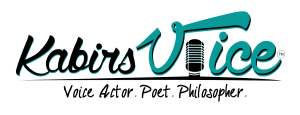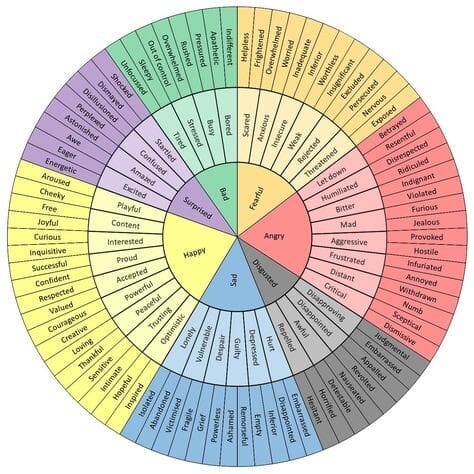Becoming Better Communicators with Lessons from Poetry, Voice Acting and Philosophy
I recently had the pleasure of returning to my alma mater to give a presentation about voice acting and my philosophies on sounding human in an artificial world at the UCR Marketing & Communications Conference. As a 2008 graduate of the University of California, Riverside, it’s always special to be able to connect with students and faculty at the school where I discovered my unique voice and explored creative outlets that laid the foundation for my eventual career as a voice actor. Over the years, I’ve done several presentations on the art of voice acting and how to become a voice actor. But my recent talk at UCR was a little different. We went beyond the standard VO-career tips to explore how aspiring voice actors (and anyone else) can become better speakers and communicators in business and in life. In the process, we touched on lessons of vulnerability, poetry, philosophy and the art of finding your unique voice. Below, you can watch the video of the talk and browse the PowerPoint presentation. But I’d like to take a moment to recap some of the ideas we discussed during the event.
2023 Presentation by Kabir Singh, UC Riverside
Becoming Better Communicators with Lessons from Poetry, Voice Acting and Philosophy
Authentic voice overs in an increasingly artificial world
A critical part of all acting, including voice acting, is emotion (often referred to as emotional voice acting).
When you’re reading a script, you must bring emotion to the voice over in a way that’s appropriate for the message, target audience and overall vibe of the ad/medium. As a voice artist, your goal is to produce authentic voice overs.
Why does this matter? Emotion is what resonates with the audience on a deeper level. This is especially true in today’s era of digital communication, AI and synthetic voices. In this increasingly artificial world, authentic human emotion stands out. It gets attention. It makes people feel. It makes them react. Without authentic emotion, a voice over sounds lifeless … bland … fake.
Do you agree? Leave a comment below to share your own experiences with voice acting. What’s your take on artificial-sounding vs. authentic voice overs?
Vulnerability in voice acting
Below, I provide some voice acting techniques and strategies for finding the right emotion for each VO. But before you can fully express that emotion, you need to start from a place of vulnerability. Here’s what I mean by that.
Vulnerability is defined as “the quality or state of being exposed to the possibility of being harmed, either physically or emotionally; often seen as a strength in personal growth and human connections because it involves openness, risk and emotional transparency.”
In expressive voice acting, you can think of vulnerability like a blank slate – a clear and open state onto which you’ll add emotion with nuance and complexity. Outside of voice acting, being vulnerable also allows for smoother, frictionless communication with the people in your life – and deeper connections with them. That’s because your vulnerability makes you more open, transparent and receptive – which is key for any conversation, collaboration or relationship. Three important foundations for vulnerability:
- Heart: Sharing your feelings, being honest and open, even when it’s difficult
- Truth: Being your authentic self and expressing yourself in accordance with your beliefs and values
- Silence: Listening to ourselves and others, creating an open space for connection
Identifying and understanding deeper emotions
A great tool I recommend for voice actors is the Junto Emotional Wheel. Based on Robert Plutchik’s theory of emotion, the wheel is a visual map of the human emotional landscape. It identifies all the many complex emotions that humans experience.
Humans are complex beings, after all. We don’t just experience “sadness.” What we actually feel might be hurt, embarrassed, lonely, ashamed, regretful, hopeless and so on. Each complex emotion is different. It has different causes and manifestations. Voice actors can achieve a greater range of tone and expressions by tapping into these emotions. But also, beyond voice acting, understanding these complex emotions is important for connecting with others, having empathy and compassion. It’s equally important for self-reflection.
The art of expressive voice acting
With the right emotional foundation, a voice actor can bring characters or narratives to life. This often requires versatility in tone, emotion and inflection to authentically convey varied personalities and moods. Like a conductor in a symphony, we can manipulate our voice to impact our message.
Elements of authentic voice overs:
- Speed, Cadence, Pace (Finding your rhythm)
- Attitude, Intent = Acting
- Energy, Volume, Feeling
When you’re approaching a voice over, the first important step is to absorb the script. Read it carefully to fully understand the underlying message. Connect with an emotion from the emotional wheel. Then, read the script aloud by imagining that you’re speaking directly to a person in front of you.
Leveraging poetry
For me, poetry plays an important role in who I am, how I view the world and what I bring to a voice over. Consider the basic definition of poetry: a form of literary expression that emphasizes rhythm, imagery and emotion, often using concise language and varied stylistic devices to convey deep feelings and ideas. Do you see the similarities with voice acting? Performing an effective voice over is all about conveying feelings and ideas with the right emotion and rhythm. But also, I’ve found that writing poetry is a way for me to express my own thoughts and emotions. It allows me to think and self-reflect, as I did with the following poem inspired by my time at UC Riverside:
Bold Hearts. Brilliant Minds
I remember these halls when they were dusty and old. UCR Riverside was for the “unwanted” and bold. The Clock Tower stood tall right before my eyes I was a young boy who was lost deeply insideThe path forward was paved with adventure and thrill I felt young while getting old by life’s moments that stood still 20 years later I find myself on a similar adventure and grind I was born to be bold with a brilliant UCR Mind.
Finding inspiration in music
For voice actors, I always recommend asking clients for the music track that will play beneath the voice over. This greatly helps to set the right tone, emotion and cadence for the voice over.
Beyond voice acting, music can also be a powerful inspiration for creative outlets, like poetry. In my presentation at UCR, I asked attendees to participate in a writing exercise. I played some music and instructed participants to pick an emotion from the emotional wheel, connect with it and then write some poetry.
Try it yourself, then comment below
Check out the video or PowerPoint above if you want to try this exercise for yourself. And if you’re willing to share, drop your poem in the comments – I’d love to read it. You don’t have to be a writer, a poet or a voice actor to benefit from this exercise. It’s a great tool for exploring emotion and expressing your authentic self through the written word.
Special thanks to UCR
I want to express my sincere gratitude to the team at UC Riverside for giving me the opportunity to give this presentation. Thank you.
Subscribe for more Subscribe to our YouTube channel for more videos and tips from professional voice over artist, poet and philosopher Kabir Singh



